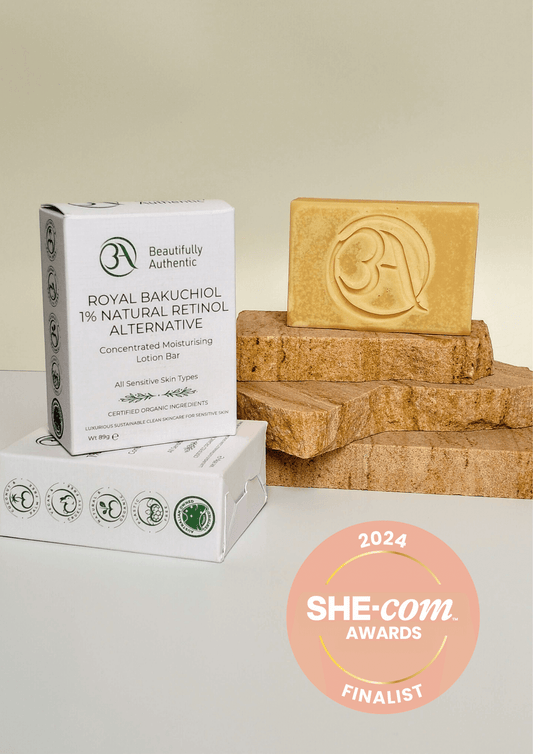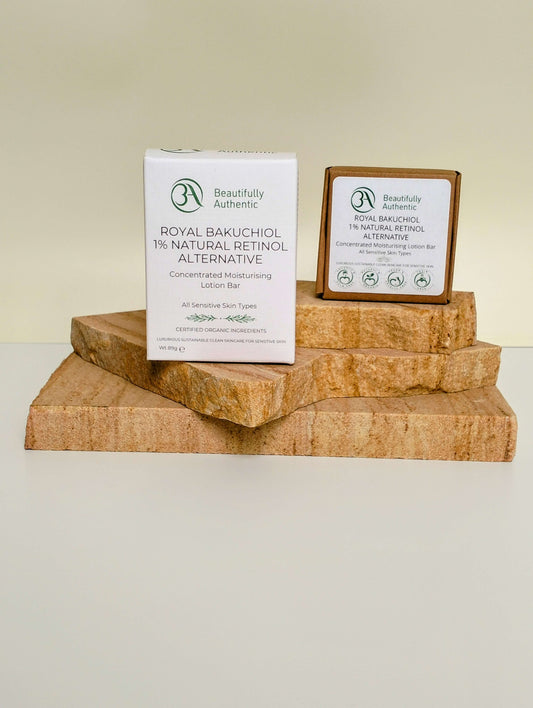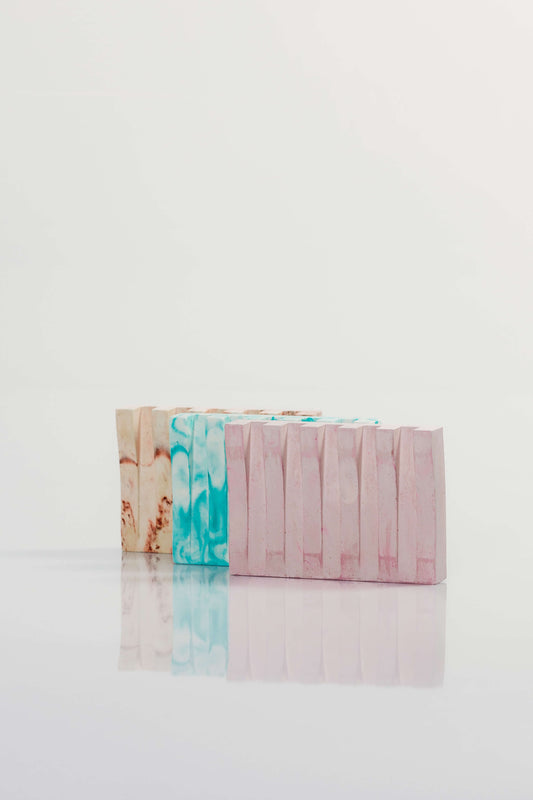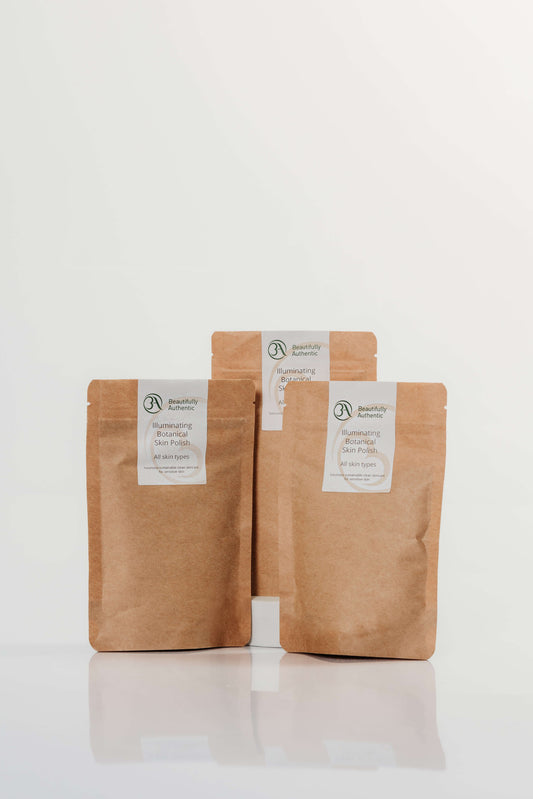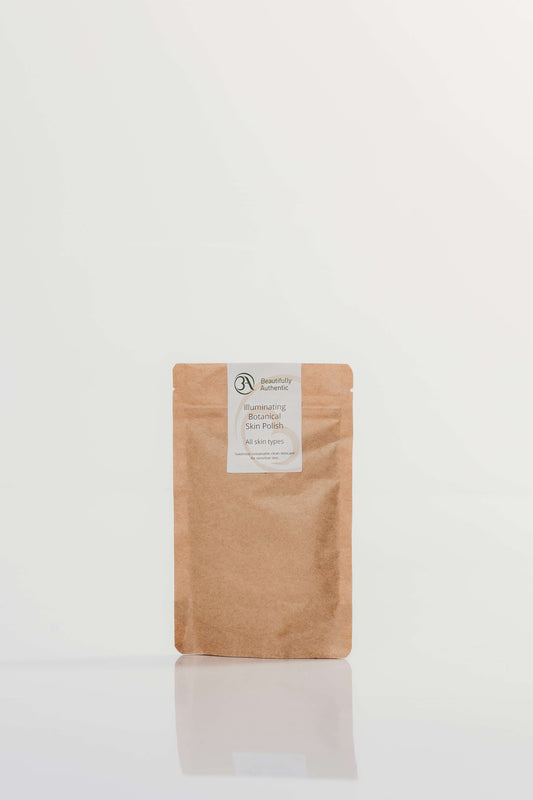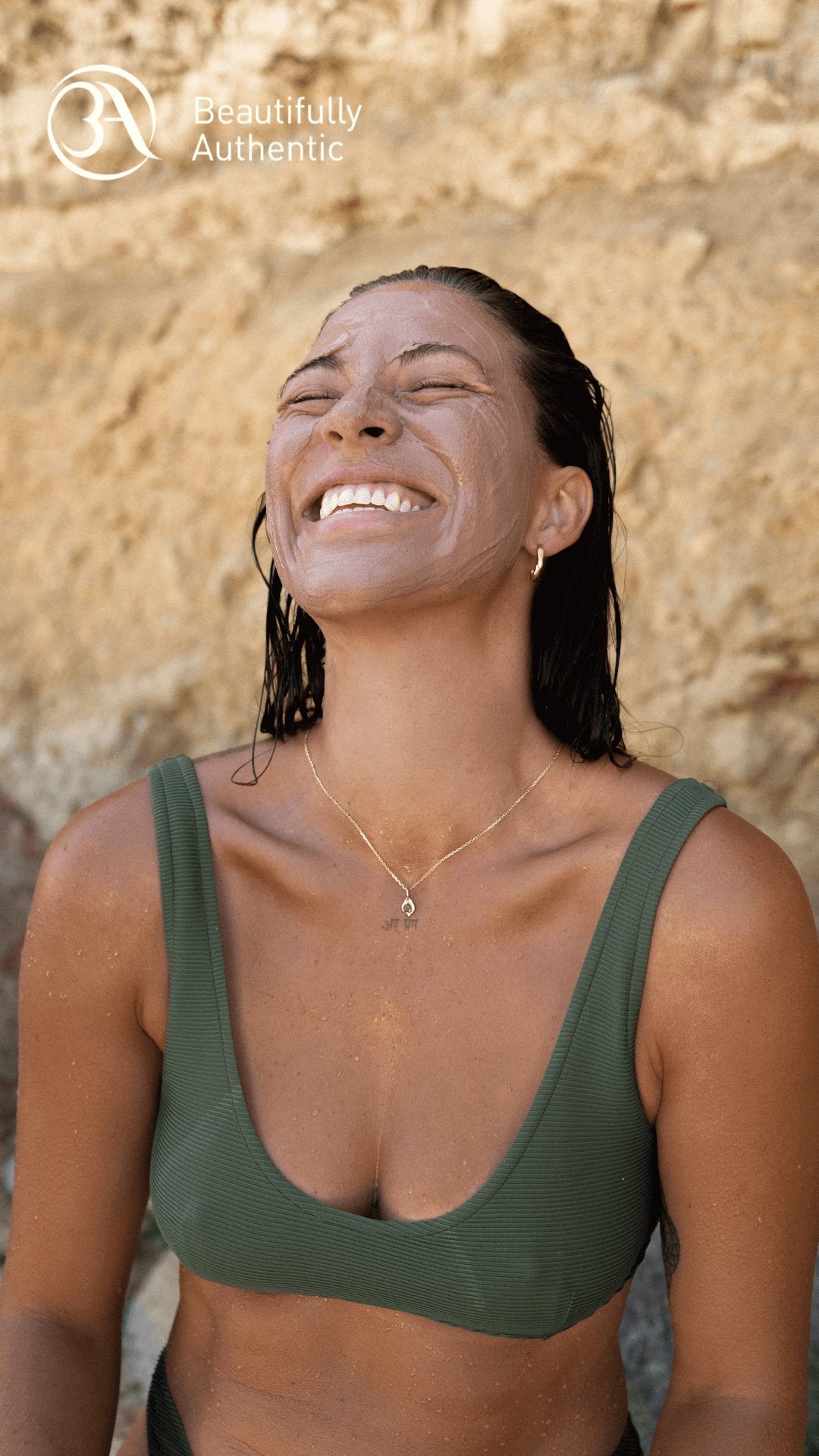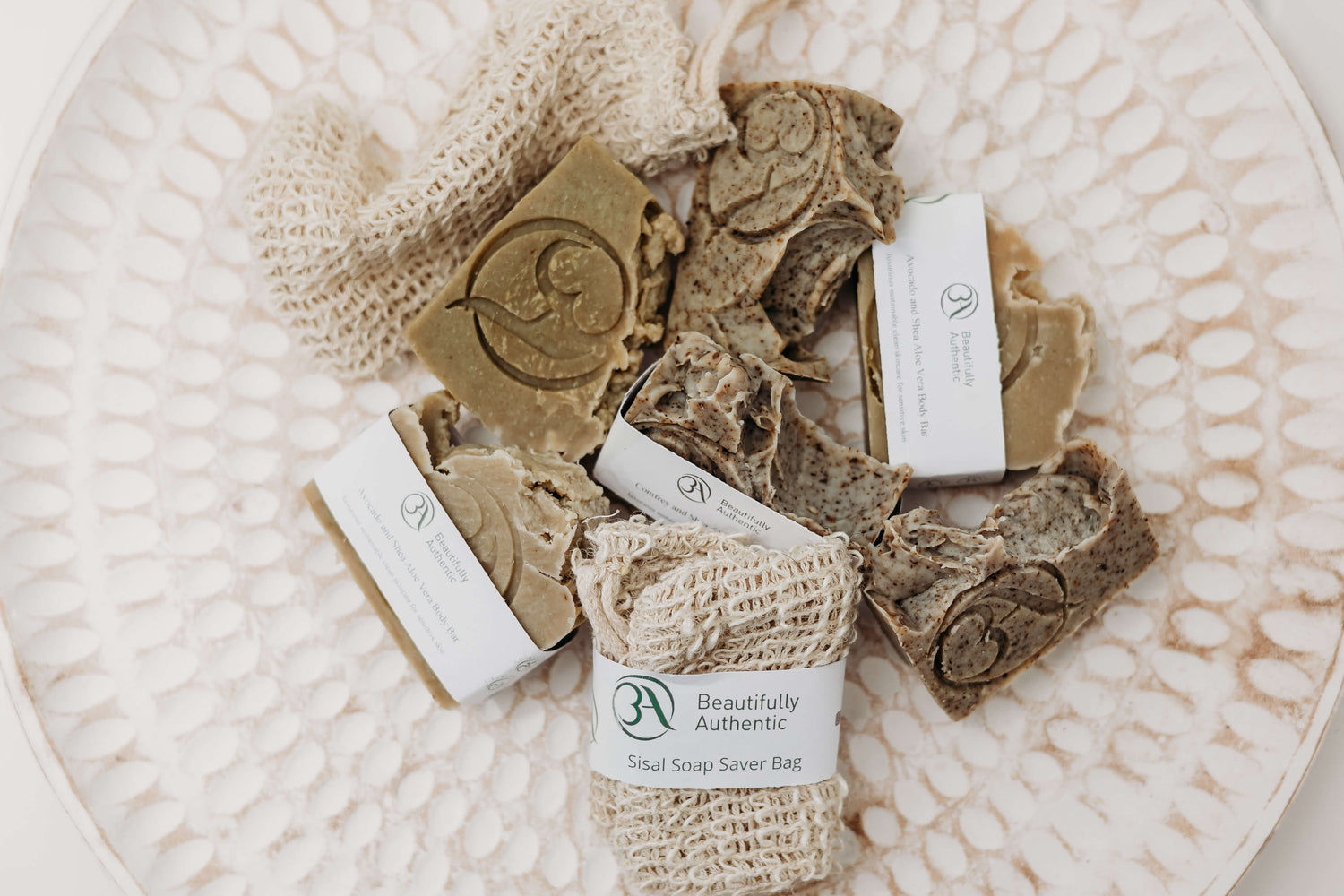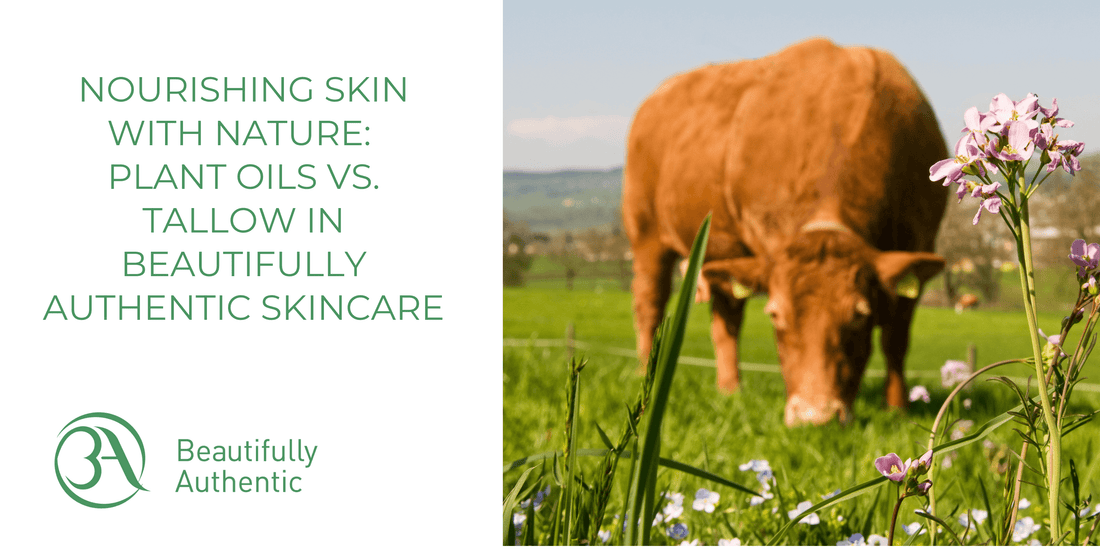
Nourishing Skin with Nature: Plant Oils vs. Tallow in Beautifully Authentic Skincare
In a world where skincare draws from the bounty of nature, plant-based oils stand out as rich, nurturing elixirs for our skin. By contrast, traditional tallow (rendered animal fat) offers a far simpler profile. In this deep dive, we’ll compare 12 luxurious plant oils – sunflower, cocoa butter, shea butter, mango butter, rice bran, rosehip, avocado, pomegranate, red raspberry seed, hemp seed, camellia, and olive oil – against similar-quality, 100% natural tallow-based skincare products. We’ll explore their fatty acids, antioxidant vitamins, and skin benefits. Prepare for a sensory journey through silky butters and golden oils, backed by peer-reviewed science and the wisdom of nature.
Rich Nutrients from Plant Oils vs. Tallow’s Simplicity
Plant oils are teeming with vitamins and antioxidants, delivering more than just moisture. They contain natural compounds like tocopherols (vitamin E), carotenoids (pro-vitamin A), vitamin C (in fresh oils or fruit components), polyphenols, and phytosterols that protect and rejuvenate the skin. For example, rice bran oil is a treasure trove of antioxidants: it contains alpha, beta, gamma, and delta-tocopherols (the vitamin E family), plus unique oryzanol and ferulic acid compounds (1). These neutralize free radicals and even help prevent UV damage, strengthening skin’s defense against aging. Many berry and seed oils are similarly potent. Red raspberry seed oil, for instance, contains about 301.9 mg/100g of vitamin E (mostly as gamma-tocopherol) along with carotenoids like lutein and β-carotene (pmc.ncbi.nlm.nih.gov). This gives it remarkable antioxidant capacity and even UV-protective properties – it’s known to reduce oxidative stress in skin and calm inflammation (pmc.ncbi.nlm.nih.gov).
Tallow, on the other hand, is nutritionally simpler. As a rendered fat from beef or lamb, it is mainly composed of triglycerides (fats) with minimal naturally occurring antioxidants. Grass-fed tallow does contain some fat-soluble vitamins (A, D, E, K) and vitamin B12 (pmc.ncbi.nlm.nih.gov), but in relatively low concentrations compared to the vibrant vitamin content of unrefined plant oils. For example, one analysis found beef tallow to have only trace amounts of alpha-tocopherol (a form of vitamin E, ~2.8 mg per 100g) (grasslandbeauty.com) – far less than the levels in plant oils like red raspberry or avocado. It lacks the diverse polyphenols and carotenoids that plant oils offer. In short, tallow is mostly a source of calories and basic fatty acids; it cannot match the vitamin-rich, antioxidant-dense profile of botanical oils.
What do these extra nutrients do for your skin? Antioxidant-rich oils help neutralize free radicals (from sun or pollution) that cause premature aging. Vitamins A, C, and E support skin’s natural repair processes – boosting collagen, improving elasticity, and fading scars or sun spots. For example, precious rosehip oil (from wild rose seeds) is famed for its high content of provitamin A (β-carotene and retinoic acid) and tocopherols. Studies show rosehip oil is rich in unsaturated fatty acids (esp. ~36–55% linoleic and ~17–27% α-linolenic) plus an “appreciable” amount of tocopherols, carotenoids, and phenolic antioxidants (pmc.ncbi.nlm.nih.gov). This synergistic mix gives it strong anti-inflammatory and regenerative powers, helping improve inflammatory skin conditions and even reduce dermal scarring (pmc.ncbi.nlm.nih.gov).
Tallow simply does not provide such a spectrum of skin nourishment. While it can act as an occlusive moisturizer, it lacks vitamin C entirely (only plants synthesize it) and contains negligible carotenoids. It does have some vitamin A and D from animal tissues, but not in the amounts or forms that plant oils do. Beautifully Authentic embraces the botanical richness instead – formulating with plant oils that infuse every application with vitamins and antioxidants for radiant, resilient skin.
Essential Fatty Acids for Skin Health and Barrier Function
Beyond vitamins, the fatty acid composition of oils greatly impacts skin. Essential fatty acids like linoleic acid (omega-6) and alpha-linolenic acid (omega-3) are critical for maintaining the skin’s moisture barrier, elasticity, and calm, clear complexion. Our bodies can’t make these fatty acids, so skin benefits when we apply oils that contain them (pmc.ncbi.nlm.nih.gov). Plant oils shine here – many are rich in linoleic or linolenic acid – whereas tallow contains very little of these essential fats.
Take sunflower seed oil, a light golden oil high in linoleic acid. Sunflower oil is comprised mainly of oleic and linoleic acids, with linoleic (omega-6) dominating (it has a higher linoleic content than even olive oil) (pmc.ncbi.nlm.nih.gov). This high linoleic content is one reason sunflower oil is so beneficial for the skin barrier. In fact, research shows that topical sunflower oil preserves the stratum corneum (outer skin layer) integrity and improves hydration in adult skin, all without causing irritation (pmc.ncbi.nlm.nih.gov). Linoleic acid is a key building block in ceramides (skin lipids); it helps fortify the barrier and reduce transepidermal water loss. It even acts as a signaling molecule that triggers skin to produce new cells and lipids for repair (by activating PPAR-α receptors) (pmc.ncbi.nlm.nih.gov). Oils high in linoleic – such as sunflower, safflower, hemp, rosehip, and red raspberry – are thus excellent for dry, sensitive, or compromised skin that needs barrier reinforcement.
By contrast, tallow is low in linoleic acid (typically only ~2–4% of its fatty acids). Beef tallow’s profile is mostly saturated fat (~40–50%) like palmitic and stearic acids, and monounsaturated fat (~40% oleic) (en.wikipedia.org). Oleic acid (omega-9) is moisturizing, but in excess it can actually disrupt some skin types. Dermatological research indicates that oleic-rich oils (like pure olive oil) can weaken the skin barrier in sensitive individuals, increasing transepidermal water loss and mild inflammation (pmc.ncbi.nlm.nih.gov) (This is why Beautifully Authentic do not use olive oil in any of our Concentrated Moisturising Lotion Bars). In fact, in one study on adults, olive oil applied to skin reduced stratum corneum integrity compared to sunflower oil (which maintained barrier function) (pmc.ncbi.nlm.nih.gov). Tallow, similarly high in oleic and saturated fats, may not provide the ideal fatty acid balance for troubled skin – especially when compared to the elegant synergy of fatty acids in plant oils.
The ideal situation is a balance: oleic acid helps penetrate and condition the skin, while linoleic acid softens, heals, and protects the barrier. Hemp seed oil is a wonderful example of nature’s balance. Hemp oil contains about 50–70% linoleic acid as the major fatty acid (extension.okstate.edu), typically around 15–25% α-linolenic (omega-3) to complement it, yielding an omega-6:omega-3 ratio of roughly 3:1 – very close to the skin’s own ratio ( extension.okstate.edu). Uniquely, hemp also supplies gamma-linolenic acid (GLA) (~0.5–4%) and stearidonic acid (SDA) (~0.5–2%), rare omega-6 and omega-3 fats that further calm inflammation (extension.okstate.edu). This cocktail of essential fatty acids makes hemp oil profoundly soothing for eczema-prone or irritated skin; studies have found GLA-rich oils help normalize epidermal function and reduce dermatitis symptoms by directly reducing inflammation and improving moisture retention in the skin barrier (pmc.ncbi.nlm.nih.gov).
Plant oils each have their own fatty acid “personality.” Shea butter, for instance, is high in stearic acid (~30–45%) and oleic (~40–50%), with a smaller linoleic fraction (pmc.ncbi.nlm.nih.gov). This gives shea a thick, buttery texture that literally melts into dry skin, forming a protective layer. Notably, shea butter contains up to ~10% unsaponifiables – compounds like triterpenes and sterols that are not fats but have potent biological activity (pmc.ncbi.nlm.nih.gov). These unsaponifiables in shea are powerfully anti-inflammatory and antioxidant, even shown to reduce cytokine release in cells (via NF-κB inhibition) (pmc.ncbi.nlm.nih.gov). That helps explain shea butter’s legendary ability to soothe rashes, calm eczema, and reinforce the skin barrier (one study found a shea-rich cream improved eczema as effectively as a ceramide cream) (pmc.ncbi.nlm.nih.gov).
Cocoa butter and mango butter share similar fatty profiles – both are solid at room temperature, rich in saturates (especially stearic ~30–40%) and oleic (~30–40%), with minimal polyunsaturates (healthline.comus.typology.com). They excel at creating a long-lasting occlusive shield on the skin, preventing transepidermal water loss and imparting a supple, elastic feel to the skin. Cocoa butter in particular is famed for fading stretch marks; its fatty acids and vitamin E content help keep skin flexible and hydrated. (Cocoa butter is about 60% saturated fat and 35% monounsaturated (oleic) (healthline.com), and while the cocoa bean is high in polyphenols, much of those antioxidants reside in the non-fat cocoa solids. Still, cocoa butter retains a small fraction of cocoa’s polyphenols and tocopherols that contribute to its soothing, anti-inflammatory properties (chemquestint.com.) Mango seed butter likewise contains vitamins A and E and antioxidants from the fruit. It’s known to boost skin softness and elasticity – no wonder it’s called a “quiet hero” among butters for its deeply moisturizing yet shockingly fast absorption and non-comedogenic nature.
Meanwhile, tallow’s fatty simplicity can moisturize, but doesn’t actively feed the skin what it needs to repair. One could think of tallow as a basic occlusive – it will coat the skin and prevent water loss, much like a waxy layer. But plant oils and butters do that plus deliver essential fatty acids that become building blocks in your skin barrier. For instance, when you smooth on Beautifully Authentic’s Deluxe Concentrated Moisturising Lotion Bar, you’re anointing your body with hemp seed oil (omega-3 & 6 for barrier repair), pumpkin seed oil (rich in linoleic and zinc to calm inflammation), and sweet almond oil (oleic and linoleic to soften and protect), along with the aforementioned plant butters. This is why customers report eczema relief and long-lasting hydration – the bar isn’t just sealing moisture in, it’s actively healing the skin barrier with the fatty acids skin craves. In contrast, a tallow-based balm might seal in moisture for a time, but it wouldn’t provide the same healing nutrients or anti-inflammatory compounds, and thus the skin “food” would be less complete.
Comparison of Key Ingredients: Plant Oils vs. Tallow
To crystallize the differences, the table below summarizes the key fatty acids and nutrients found in each of these plant-derived oils versus tallow. Each natural ingredient offers a unique profile that supports skin health, whereas tallow’s profile is comparatively limited:
| Ingredient | Key Fatty Acids Profile | Vitamins & Antioxidants |
|---|---|---|
| Sunflower Seed Oil | High in linoleic acid (~60% ω-6); oleic ~30%; low saturates pmc.ncbi.nlm.nih.gov. Light texture, absorbs readily. | Vitamin E (tocopherols) rich, especially α-tocopherol. Contains lecithin and carotenoids; proven to improve skin hydration and barrier pmc.ncbi.nlm.nih.gov. |
| Cocoa Butter | High in saturates (~60%: ~25% palmitic, ~33% stearic); ~35% oleic (ω-9); <5% linoleic healthline.com. Solid at room temp (melting ~34°C). | Vitamin E (low but present) and vitamin K. Contains polyphenols with anti-inflammatory properties chemquestint.com. Creates a protective, elastic barrier on skin (great for scars/marks). |
| Shea Butter | ~40–45% stearic (SFA), ~40–50% oleic (MUFA); ~5–10% linoleic (ω-6) pmc.ncbi.nlm.nih.gov. Buttery and thick. | Vitamins A and E; Unsaponifiables (~5–10%) like triterpenes, sterols pmc.ncbi.nlm.nih.gov. These confer strong antioxidant and anti-inflammatory effects pmc.ncbi.nlm.nih.gov – ideal for sensitive, eczema-prone skin. |
| Mango Seed Butter | ~35–45% stearic, ~40% oleic; ~5% palmitic, ~4–6% linoleic; ~2% α-linolenic. Semi-solid butter with silky fee lus.typology.com. | Vitamins A, C, and E (from the mango kernel) in small amounts. High in phytosterols and phenolics; known to improve skin elasticity and UV defense (mango’s salicylic acid and antioxidants help protect from sun damage healthline.com). |
| Rice Bran Oil | Balanced profile: ~38–42% oleic, ~32–38% linoleic, ~20% saturates (palmitic) drugs.com. Light, velvety oil. | Tocopherols & Tocotrienols (Vit E) and unique γ-oryzanol (a ferulic acid complex) abundant drugs.com. Contains squalene and sterols. These antioxidants fight UV damage and inflammation, promoting soft, bright skin henrytianus.com. |
| Rosehip Oil | High in polyunsaturates: ~36–55% linoleic (ω-6), ~15–26% α-linolenic (ω-3); ~15–22% oleic pmc.ncbi.nlm.nih.gov. Lightweight, fast-absorbing. | Provitamin A (β-carotene) and trans-retinoic acid (natural retinol) – excellent for regeneration. Contains vitamin E and polyphenols (vanillin, p-coumaric acid) pmc.ncbi.nlm.nih.gov. Known to reduce scars, pigmentation, and inflammation with consistent use. |
| Avocado Oil | Primarily oleic (~32–70%) and palmitic (~10–20%); moderate linoleic (~10–20%); also ~0.5–1% linolenic pmc.ncbi.nlm.nih.gov. Thick, nourishing oil. | Vitamin E and vitamin D rich. High in β-carotene (provitamin A) and lutein. Also contains potassium and lecithin pmc.ncbi.nlm.nih.gov. Penetrates deeply to strengthen the dermis; studies show it boosts collagen synthesis and wound healing pmc.ncbi.nlm.nih.gov. |
| Pomegranate Seed Oil | Unique profile with punicic acid (~65% ω-5) – a conjugated linolenic acid; ~25–30% linoleic; ~5–10% oleic pmc.ncbi.nlm.nih.gov. Medium-weight oil. | Polyphenol powerhouse: rich in ellagic acid and flavonoids. Punicic acid itself is a potent anti-inflammatory and antioxidant, aiding skin repair. Shown to improve skin elasticity and even help reduce UV-induced damage; promotes collagen production and smooth, firm skin pmc.ncbi.nlm.nih.gov. |
| Red Raspberry Seed Oil | Polyunsaturated-rich: ~52–54% linoleic (ω-6), ~30–33% α-linolenic (ω-3); ~10–15% oleic pmc.ncbi.nlm.nih.gov. Lightweight, non-greasy. | Exceptional Vitamin E content (~295 mg/100g tocopherols )pmc.ncbi.nlm.nih.gov – mainly γ-tocopherol, plus carotenoids (zeaxanthin, lutein) and phytosterols pmc.ncbi.nlm.nih.gov. These give it strong antioxidant and anti-inflammatory action. Also noted for absorbing some UVB/UVC rays, offering natural photo-protection healthline.com. Skin feels calm, nourished, and defended. |
| Hemp Seed Oil | Omega-balanced: ~50–70% linoleic (ω-6), ~15–25% α-linolenic (ω-3), ~10–15% oleic; plus GLA (~2–4%) & SDA (~0.5–2%) extension.okstate.edu. Green-hued, delicate oil. | Contains vitamin E (γ-tocopherol dominant) and polyphenols from seed hulls. GLA confers anti-inflammatory benefits – helps calm redness and irritation medicalnewstoday.com. Regular use improves skin’s moisture retention and softness. Often called “nature’s perfect oil” for eczema due to its ideal fatty acid ratio. |
| Camellia Oil (Tea Seed) | Oleic superstar: ~75–85% oleic (ω-9); ~5–8% linoleic; ~2% α-linolenic; remainder saturates similar to olive oil sciencedirect.com. Silky, light oil (nicknamed “Oriental olive oil”). | Vitamin E (especially α-tocopherol ~100–200 mg/kg) and abundant antioxidants: squalene, phytosterols, polyphenols, and flavonoids pmc.ncbi.nlm.nih.gov. Traditionally revered for anti-aging – improves skin elasticity, fades spots, and protects from environmental stress. Non-comedogenic and fast-absorbing. |
| Olive Oil | High in oleic (~70–78%), low linoleic (~7–12%), ~10% saturates pmc.ncbi.nlm.nih.gov. Heavy oil texture. | Contains over 200 compounds – phenolic antioxidants (like hydroxytyrosol, oleuropein) that are even stronger than vitamin E in fighting free radicals pmc.ncbi.nlm.nih.gov. Also rich in squalene and vitamin E (~14 mg/100g). Great for diets and wound healing pmc.ncbi.nlm.nih.gov, but as a leave-on oil it can disrupt barrier if skin is compromised pmc.ncbi.nlm.nih.gov. |
| Tallow (Animal Fat) | High in saturates (~40–50%: palmitic ~25%, stearic ~15%); high oleic (~40–45%); very low polyunsaturates (~2–5% linoleic, <1% linolenic) en.wikipedia.org pmc.ncbi.nlm.nih.gov. Solid at room temp (melts ~40°C). | Small amounts of vitamins A, D, K, E, and B12 naturally present pmc.ncbi.nlm.nih.gov, but no plant antioxidants. No polyphenols, carotenoids, or vitamin C. Functions mainly as an occlusive moisturizer. Biocompatible with skin oils, but lacks the active nutrients to actively repair or protect skin (aside from basic fats). |
Table: Key fatty acid composition and nutrient highlights of plant-derived oils vs. tallow. Plant oils provide a far richer array of essential fatty acids (ω-6 linoleic and ω-3 α-linolenic) and antioxidant vitamins than tallow, which consists mostly of oleic and saturated fats with minimal micronutrients. This means plant oils can nourish, protect, and heal the skin in ways tallow cannot, while still providing excellent moisturization.
How Beautifully Authentic Harnesses Plant Oils (and Outperforms Tallow)
Beautifully Authentic formulates each product to maximize these plant oils’ benefits, far surpassing what tallow-based products can do. By mindfully blending specific cold pressed oils and butters, each item in our range delivers targeted nourishment, protection, and skin vitality:
Queen Concentrated Moisturising Lotion Bar – Balanced Hydration for Combination Skin
Our Queen Lotion Bar is a celebration of lightweight yet powerful botanicals. We crafted it for combination/sensitive skin that craves balance – not too heavy, not too light. Instead of pore-clogging tallow, Queen relies on silken camellia oil and jojoba to mimic skin’s natural sebum and regulate oils. Camellia oil, rich in oleic acid and antioxidants, gives a satiny slip that penetrates deeply, delivering vitamin E and polyphenols to combat oxidative stress pmc.ncbi.nlm.nih.gov. It leaves the skin soft and dewy, never greasy. We pair it with red raspberry seed oil – a secret for maintaining a clear, calm complexion. Raspberry seed oil’s high linoleic content and anti-inflammatory phytosterols help keep pores clear and reduce redness, while its natural UV-shielding properties guard against sun damage pmc.ncbi.nlm.nih.gov. A touch of rice bran oil adds B-vitamin and oryzanol goodness to brighten and even skin tone. The Queen bar glides on like a whisper, locking in moisture with cocoa and mango butters but absorbing cleanly thanks to those elegant seed oils. Users describe it as “the Queen of moisturizers” – it soaks in without residue and leaves skin glowing and balanced, something a one-note animal fat could never achieve. Indeed, one customer raves: “The way it glides on your skin… with all its natural oils and butters, feels so luxurious… Gone is the dryness; my skin is finally being nourished properly” beautifullyauthentic.com.au.
Opulent Concentrated Moisturising Bar – Deep Nourishment for Dry/Mature Skin
When skin matures or becomes very dry, it needs opulence – rich nourishment that restores what time and the elements have taken. Our Opulent Lotion Bar delivers exactly that, through a carefully curated blend of butters and anti-aging oils (with zero tallow in sight). We start with a sumptuous base of organic cacao, shea, and mango butters, whose fatty acids melt into parched skin and relieve that uncomfortable “tight” feeling. As one user put it, “from the second I opened the box, a dreamy cacao scent filled the air… the most luxurious and deeply nourishing bar” beautifullyauthentic.com.au. Beyond indulgence, these butters provide serious therapy: shea’s triterpenes reduce inflammation in chapped skin pmc.ncbi.nlm.nih.gov, while cocoa and mango butter form a protective lipid layer to prevent moisture loss all day.
But we didn’t stop at decadence – Opulent is also an anti-aging powerhouse. We incorporated avocado oil for its vitamins A, D, and E that boost collagen and heal dry damage pmc.ncbi.nlm.nih.gov. We added rosehip seed oil, nature’s retinol, to encourage cell renewal and fade sun spots with its provitamin A content. Rosehip is clinically shown to improve photoaged skin and scars pmc.ncbi.nlm.nih.gov, making it ideal for mature complexions. Finally, pumpkin seed oil (rich in zinc and linoleic acid) helps firm and clarify – it balances oil production and supports elasticity with its vitamin A and E content beautifullyauthentic.com.au. The result is a bar that revives dull, aging skin, delivering intense hydration and vitamins to plump and smooth. Dry, mature skin drinks up Opulent’s nutrients, emerging supple and radiant. As one longtime user shared: “I love how luxurious it feels massaging it in… my skin now never feels dry and tight. It’s perfect for face and body. I even converted my husband who never used to moisturize!” beautifullyauthentic.com.au. That lasting comfort and rejuvenation simply wouldn’t be possible with a plain animal fat – it’s the botanical actives that make the difference.
Deluxe Concentrated Moisturising Bar – Healing Relief for Very Dry/Sensitive Skin
For skin that is extremely dry, sensitive, or prone to eczema, our Deluxe Bar is a soothing balm in solid form. Instead of petrolatum or tallow, we chose gentle plant oils known to repair and calm compromised skin. A trinity of cocoa, mango, and shea butter gives Deluxe its deeply emollient base – you can literally feel these butters easing rough, cracked patches upon contact. What truly sets Deluxe apart, however, are its high levels of essential fatty acids from oils like hemp seed and sweet almond. These oils soak into thirsty skin to heal from within. Hemp seed oil provides those omega-6 and omega-3 fatty acids that replenish the lipid barrier, helping to alleviate the itching and irritation of conditions like eczema pmc.ncbi.nlm.nih.gov. Sweet almond oil, rich in oleic and linoleic acids plus vitamin E, has been used for centuries to soften skin and even reputedly to help protect against UV damage with its antioxidant vitamin E beautifullyauthentic.com.au. We also include pumpkin seed oil in this bar – a hidden gem overflowing with nutrients (vitamin E, beta-carotene, zinc) that accelerate repair of compromised skin and combat inflammation beautifullyauthentic.com.au.
The synergy of these ingredients means instant relief and lasting improvement. Many of our customers with eczema or dermatitis report that the Deluxe Bar is the only moisturizer their reactive skin tolerates. The absence of tallow (and its potential irritant byproducts) means no inflammation – just pure, plant-based comfort. One mother shared that nothing soothed her little boy’s eczema like Deluxe: “his sore, red patches” calmed and healed, and “ever since we started using Beautifully Authentic products, our skin has been softer, less dry and feels healthier all round” beautifullyauthentic.com.au. That is the power of omega-rich, anti-inflammatory plant oils at work. Tallow could have formed a grease layer, but it lacks the linoleic acid and GLA to actually repair eczema. Deluxe Bar, with hemp and shea, not only protects the skin but actively reduces inflammation and triggers regeneration, leading to real healing. It delivers an invisible hug of moisture that stays with you, yet without any greasiness – as we say, “hydrates, repairs, and protects—all without the grease” beautifullyauthentic.com.au.
Royal Bakuchiol Concentrated Lotion Bar – Potent Anti-Aging (Natural Retinol Alternative)
For those seeking the pinnacle of plant-based skincare performance, we created the Royal Bakuchiol 1% Natural Retinol Alternative Concentrated Moisturising Lotion Bar – a sophisticated treatment that challenges even high-end retinol creams, but with 100% natural ingredients. This concentrated bar marries a who’s-who of anti-aging oils with bakuchiol (a plant-derived retinol analog) to target fine lines, wrinkles, scarring, acne and uneven tone. Instead of using animal retinol (which can be irritating and is often sourced from fish or animal livers), or synthetically produced vitamin A, we use bakuchiol from babchi seeds – a gentle botanical that stimulates collagen like retinol without the side effects. We dissolved this bakuchiol in a blend of pomegranate seed oil, red raspberry seed oil, and tamanu oil to amplify its effects. Why these oils? Pomegranate and raspberry, as discussed, bring a huge antioxidant payload that protects skin from collagen-damaging free radicals pmc.ncbi.nlm.nih.gov. Tamanu oil (from the sacred Polynesian tree) is renowned for its skin regeneration properties – it’s rich in calophyllolide and linoleic acid, which promote healing of scars and sun damage.
The base of Royal is similar to our other bars – creamy cocoa, mango, and shea butters – but we also include jojoba and camellia oils to ensure a smooth, absorbent finish (critical for facial use). Jojoba is technically a wax ester very akin to human sebum; it carries actives into the skin and balances oil production. Camellia, as mentioned, is packed with vitamin E and polyphenols that have shown anti-aging activity (it’s historically credited for the famous geisha complexion). The Royal Bar glides on like a rich serum – you can feel it enveloping the skin in moisture – yet it sinks in cleanly after a few moments, delivering its actives deep into the epidermis. Users have noticed a quick improvement: “It absorbed beautifully, I didn’t need a lot. The glow it gave me was incredible – I felt confident without makeup!” one trial tester reported beautifullyauthentic.com.au. Over weeks, Royal helps refine skin texture, lighten age spots, and soften wrinkles, all while nourishing the skin with high levels of omega fatty acids and vitamins from its oils. Tallow, in any form, could never achieve these multifaceted results – it has no wrinkle-fighting active, no rich antioxidant blend. But by harnessing plant oils, Royal Bar provides the ultimate pro-age radiance with zero irritation. It’s truly “transformative” skincare in solid form beautifullyauthentic.com.au, a testament to how advanced green beauty has become.
Aloe Vera Cleansing Bars – Gentle, Vitamin-Fortified Cleansers
Even in cleansing, Beautifully Authentic opts for plant oils over tallow (which was traditionally used in soaps). Our Pink Platinum Aloe Vera Facial Cleansing Bar is a perfect example. While many soaps are tallow-based and can strip the skin, ours is a cold-processed botanical soap made from saponified olive, sunflower, rice bran, castor, shea, cocoa, mango, and avocado oils – a veritable feast for the skin beautifullyauthentic.com.au. During saponification, these oils retain their glycerin and some unsaponified portions, meaning the final bar is loaded with natural moisturizers and vitamins (plus added fresh aloe vera gel for soothing hydration). Olive oil and sunflower oil form the nourishing base of the lather, imparting a creamy, non-drying cleanse. Olive brings its antioxidant polyphenols and squalene, while sunflower ensures the soap is gentler (thanks to its linoleic acid) – this balance prevents the overly stripping effect that 100% olive soaps or tallow soaps might have. We incorporate pink clay for a touch of exfoliation and mineral richness, but no synthetic detergents or fillers. The result is a cleansing bar that purifies skin without leaving it “squeaky” or tight. Reviewers attest to this: “It gently cleanses without drying… my skin looks brighter, clearer and moisturised immediately. On days I don’t use this soap, I feel the difference – and not a good one!” beautifullyauthentic.com.au.
The aloe vera and plant oils in the bar actually deposit a thin veil of moisture and nutrients as you wash, so your face never feels parched. This is utterly unlike conventional tallow soaps which, while effective at cleaning, often leave skin needing urgent moisture. By formulating with plant oils, we turn the simple act of cleansing into an opportunity to nourish the skin with vitamins (A, E) and antioxidants even before you apply your moisturizer. It’s a beautiful example of our ethos: every step in your routine can feed your skin’s health (and soul) – there are no afterthoughts, no cheap fillers.
Ethical and Environmental Advantages of Plant Oils
Beyond the tangible skin benefits, choosing plant-based oils over tallow aligns with Beautifully Authentic’s commitment to ethical, sustainable skincare. Our botanical ingredients are sourced from nature’s renewable gifts – seeds, nuts, and fruits – often as byproducts of agriculture (like raspberry or hemp seeds left from food production). This means when you use our products, you’re supporting a cycle of sustainability: farmers can gain extra income from pressing oil seeds, and no part of the plant goes to waste. In contrast, tallow is an animal-derived ingredient (commonly from cows or sheep). While using slaughterhouse byproduct can be seen as recycling, it is inherently tied to the livestock industry. Many of our customers (and we as formulators) are uncomfortable with that connection – we prefer skincare that is cruelty-free and does not depend on animal processing. Plant oils allow us to achieve that. They are vegan, and our suppliers often practice organic farming and fair trade, further reducing the environmental footprint.
It’s also worth noting the sensory pleasure difference: plant oils carry the subtle fragrances of flowers, nuts, and earth. Think of the chocolaty aroma of cocoa butter, or the nutty-sweet scent of shea. These natural scents make our formulation experiences unto themselves – the Queen Bar has a delicate hint of rose geranium, the Opulent Bar smells of dreamy cacao. Tallow, on its own, has a bland fatty smell that must be masked. We much prefer the authentic, earthy aromas of nature’s botanicals, aligning with our brand’s emphasis on beautiful authenticity. When you open a Beautifully Authentic product, you can breathe deeply knowing the scent is real – from real butters, real essential oils or herbal infusions – not an artificial fragrance trying to cover up animal fat. It’s skincare that delights the senses and conscience alike.
Finally, by forgoing tallow and choosing plant oils, we support the broader movement of green beauty. Our lotion bars and soaps are biodegradable and free of petrochemicals. Any wash-off down the drain (like from our aloe vera soap) is gentle on aquatic ecosystems, unlike some tallow soaps that can contain synthetic additives or like some lotions that might contain mineral oils. We also partner with programs like “One Tree Planted” or "Greenspark" beautifullyauthentic.com.au, reflecting the symbiotic relationship between our business and the Earth. The plants give us these healing oils; in return, we give back by planting more trees and nurturing the environment that sustains us.
What Are PUFAs and Why Do They Matter?
PUFAs—polyunsaturated fatty acids—are essential nutrients for skin health, though they’re often misunderstood. Despite widespread misinformation suggesting they’re unstable or harmful in skincare, scientific evidence consistently shows that PUFAs are not only safe when properly formulated, but incredibly effective at restoring skin barrier function, calming inflammation, and supporting healthy, resilient skin. They include omega-6 (like linoleic acid) and omega-3 (like alpha-linolenic acid), both of which the body cannot produce on its own. These fatty acids:
- Help build and maintain the skin’s moisture barrier
- Reduce inflammation
- Support skin regeneration and elasticity
- Are often found in lighter, non-comedogenic oils that suit sensitive or acne-prone skin
Plant oils like rosehip, hemp seed, raspberry seed, sunflower, and rice bran are rich in these essential fatty acids—especially linoleic acid, which has been shown to reduce skin dryness, improve hydration, and calm irritation. Hemp seed oil, for example, has a beautifully balanced omega-6 to omega-3 ratio (~3:1), closely resembling our skin’s natural lipid structure. It also contains gamma-linolenic acid (GLA) and stearidonic acid (SDA)—rare omega fatty acids with anti-inflammatory properties.
Are PUFAs Too Unstable to Use?
There’s a common myth circulating—often echoed in online wellness forums and natural beauty circles—that PUFAs are “too unstable” for skincare due to their susceptibility to oxidation. While it’s true that polyunsaturated oils can go rancid faster than saturated fats like tallow, that doesn’t mean they’re unsafe or ineffective.
In fact, the key lies in:
- Proper storage (cool, dark spaces)
- Stabilizing antioxidants (like natural vitamin E, which we naturally include in our bars)
- Solid bar formulations, which reduce air exposure
- Small-batch freshness, as used in all Beautifully Authentic products
When carefully formulated and stored, PUFA-rich oils offer unmatched benefits. At Beautifully Authentic, we take this seriously—each of our oils is cold-pressed, stored away from heat and light, and blended with stabilizing antioxidants like vitamin E rich oils. Our solid bar format reduces air exposure, and we craft in small batches to ensure every product reaches you at peak freshness and potency, to sensitive, dry, and inflamed skin—without the oxidative risk that some claim. We don’t let fear override the science. And neither should you.
Tallow’s Fatty Acid Profile: Simple but Limited
While tallow-based skincare has its roots in tradition and simplicity, its fatty acid profile is mostly:
- Oleic acid (~40–50%)
- Saturated fats like palmitic and stearic (~40–50%)
- Very low linoleic or linolenic acid (~2–5%)
This makes tallow more oxidatively stable, but far less nutritionally supportive. It forms a moisture-sealing layer on the skin, but doesn’t actively contribute to skin renewal, anti-inflammatory activity, or barrier repair the way PUFA-rich plant oils do.
At Beautifully Authentic, we believe skincare should do more than seal—it should nourish, regenerate, and protect. That’s why we formulate with oils chosen for their rich PUFA profiles, naturally balanced with antioxidant-dense butters like shea, cocoa, and mango.
PUFA Content and Skin Benefit Comparison
The choice is clear: while tallow may offer a stable base and basic occlusion, plant oils deliver the full spectrum of skin nourishment—from essential fats and vitamins to anti-aging antioxidants and healing compounds.
In summary, plant-based oils unequivocally outshine tallow when it comes to skincare benefits. They are brimming with skin-essential nutrients – antioxidants that fend off aging, vitamins that brighten and heal, and essential fatty acids that restore moisture and resilience. They offer targeted therapies: some boost collagen, some calm inflammation, others provide natural sun protection. By artfully blending these gifts of nature, Beautifully Authentic creates products that truly feed your skin, going far beyond the one-dimensional moisturizing of tallow. And we achieve all this while honoring ethical values and sustainable practices, ensuring your glow comes with a clear conscience.
When you use our lotion bars or soaps, you feel the difference. The textures are indulgent yet absorbent, leaving your skin velvety and nurtured – not greasy. The results speak in softer, stronger, more radiant skin that can defend itself against dryness, age, and environment. Our customers often describe their skin as having a new vitality and balance. This is the power of choosing botanical oils over animal tallow: it’s a choice for vitality over mere survival, for thriving over just getting by.
Nature has provided an apothecary of remedies in these plant oils – and at Beautifully Authentic, we’ve bottled (or rather, barred) that goodness in its purest form for you. Experience the difference of skincare that is both beautiful and authentic, where every ingredient has a purpose and a benefit, and where your skin is treated as the living, loving organ it is. With our plant-based lotions and cleansers, you’ll not only see healthier skin – you’ll feel the embrace of Earth’s best offerings every day, an experience as nourishing for the soul as it is for the skin.
Sources: The efficacy and properties of these oils are supported by scientific research and traditional usage. For instance, sunflower seed oil’s barrier benefits are documented in dermatological studies pmc.ncbi.nlm.nih.gov; the rich unsaponifiables of shea butter and their anti-inflammatory action are noted in phytochemical analyses pmc.ncbi.nlm.nih.gov; rosehip oil’s antioxidant profile and healing effects are reported in clinical trials pmc.ncbi.nlm.nih.gov. Plant oils like avocado have shown in animal studies to increase collagen synthesis during wound healing pmc.ncbi.nlm.nih.gov, and pomegranate oil has demonstrated UV-protective and anti-tumor properties in lab models pmc.ncbi.nlm.nih.gov. On the flip side, research cautions that pure olive (and by analogy, tallow) may impair skin barrier in some cases pmc.ncbi.nlm.nih.gov, underscoring the importance of linoleic-rich oils for sensitive skin. By formulating with a spectrum of plant oils, we ensure a broad supply of beneficial constituents – an approach validated by modern science and centuries of empirical wisdom. In choosing plant oils over tallow, we choose a path of holistic skin health, rooted in compassion, sustainability, and scientifically-backed efficacy. Your skin will thank you for it, and so will Mother Nature.

